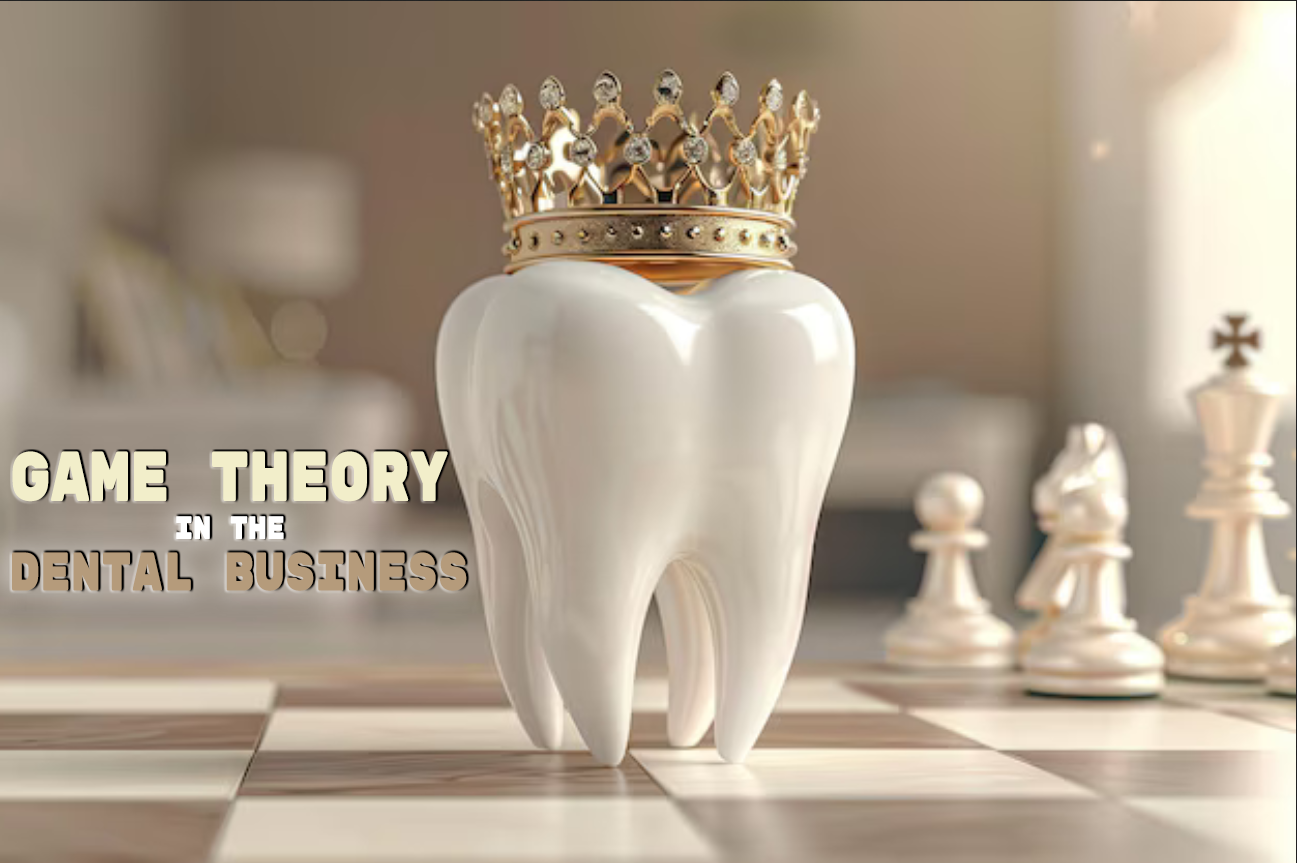Implementing Game Theory Principles in The Dental Business

The Complexity of The Dental Business
The dental industry is a complex ecosystem characterized by strategic interactions between patients, providers, insurance companies, and dental laboratories. Understanding and managing these interactions is crucial for dental practices to thrive. In this article, We will discuss key Game theory principles that can be implemented in the dental business for better outcomes.
What is Game Theory??
Game theory, a branch of mathematics that analyzes strategic interactions between rational decision-makers, has found increasing application in various fields, including economics, political science, and sociology. In recent years, its potential to revolutionize business strategies has become evident. The dental industry, characterized by its competitive landscape and intricate patient-provider relationships, is an ideal domain for the application of game theory.
Why is Game Theory Important?
At its core, game theory is concerned with understanding how rational individuals or entities interact to achieve their objectives. In the context of the dental business, these entities can be dentists, patients, insurance companies, and dental laboratories. By analyzing the strategic choices and potential outcomes of these interactions, dental practitioners can develop more effective business strategies.
Key Game Theory Concepts for Dental Practices
The Prisoner’s Dilemma
One of the fundamental concepts in game theory is the prisoner’s dilemma. This scenario illustrates a situation where two individuals, acting independently, may choose to cooperate or defect. While cooperation leads to the best overall outcome, each individual has an incentive to defect, leading to a suboptimal result. In the dental context, this could be applied to the relationship between dentists and insurance companies. While both parties benefit from a cooperative relationship, there may be incentives for one party to exploit the other, leading to a breakdown in trust and cooperation.
The Nash Equilibrium
Another important concept in game theory is the concept of Nash equilibrium. This occurs when no player can improve their outcome by unilaterally changing their strategy, given the strategies of the other players. In the dental industry, Nash equilibrium can be used to analyze the pricing strategies of competing dental practices. By understanding the pricing behavior of competitors, dentists can determine the optimal pricing strategy that maximizes their profits.
Patient-Provider Relationship
Game theory can also be applied to the patient-provider relationship. By analyzing the patient’s perspective and understanding their motivations, dentists can develop strategies to build trust, improve patient satisfaction, and increase patient loyalty. For example, offering flexible appointment scheduling, providing clear communication, and addressing patient concerns can be seen as strategic moves to enhance the patient experience.
Applications of Game Theory in Dental Business
- Resource Allocation: Game theory can help dentists optimize the allocation of resources within their practices, ensuring efficient use of time, equipment, and staff.
- Pricing Strategies: By analyzing the pricing behavior of competitors, dentists can determine the optimal pricing strategy that maximizes their profits.
- Patient Relationship Management: Game theory can provide insights into patient behavior and help dentists develop strategies to enhance the patient experience.
Conclusion
In conclusion, game theory offers a valuable framework for understanding and optimizing strategic interactions in the dental industry. By analyzing the behavior of patients, providers, insurance companies, and other stakeholders, dental practitioners can develop more effective business strategies, improve patient satisfaction, and enhance profitability. As the dental industry continues to evolve, the application of game theory is likely to become increasingly important.

